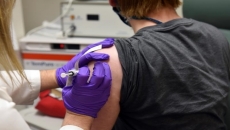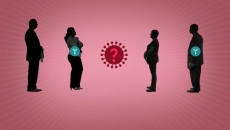New Delhi, March 4 (IANS) The war in Ukraine has reached the nuclear sites with Russian troops making attempts to take over these plants. The attacks to take control of these nuclear sites have raised worldwide concern.
Ukraine has 15 nuclear power units (13.8 GW) at four nuclear power plants: Rivne, Khmelnitskiy, South Ukraine and Zaporizhzhia, the largest one in Europe.
So far the Russian troops have taken over the closed nuclear power plant at Chernobyl and the active nuclear power plant Zaporizhzhia, situated on the banks of the Dnieper River, in the city of Enerhodar.
On Friday after intense fighting at Zaporizhzhia, Russia claimed that its troops have taken control of the nuclear power plant. The fighting caused a fire at the nuclear site which was eventually doused by the Ukrainian authorities.
The fire which began after Russian shelling was extinguished and the radiation levels remain unchanged, though several units of the facility have been damaged.
Ukraine's nuclear regulator said that Russian military forces seized the plant on Friday morning but the plant's staff is continuing to ensure its operations.
Enerhodar Mayor Dmytro Orlov announced on his Telegram channel Friday morning: "The fire at the (nuclear plant) has indeed been extinguished."
The International Atomic Energy Agency (IAEA) said the fire had not affected essential equipment and that Ukraine's nuclear regulator reported no change in radiation levels.
In a tweet, the IAEA said, "Ukraine informed IAEA that Russian forces took control of the site of Zaporizhzhia Nuclear Power Plant; says safety systems of the plant's six reactors had not been affected and there has been no release of radioactive material. Two people reported injured."
Ukraine's nuclear power plants are operated by NNEGC Energoatom, the country's nuclear power utility.
It was the second time since the war began and there are concerns about a nuclear accident or release of radioactive material.
The first time there were concerns on February 24 when Russian troops took control of closed nuclear power site Chernobyl.
Ukraine had then informed the IAEA that Russian forces had taken control of all facilities of the Chernobyl nuclear power plant. Also on the same day control levels of gamma radiation dose rates in Chernobyl were exceeded.
On February 25 Ukraine's State Nuclear Regulatory Inspectorate said that the rise in radiation levels was likely due to the "disturbance of the top layer of soil from the movement of a large number of heavy military machinery through the exclusion zone and increase of air pollution." It added: "The condition of Chernobyl nuclear facilities and other facilities is unchanged."
The Chernobyl nuclear power plant in northern Ukraine has been surrounded for more than three decades by a 2,600-square kilometre exclusion zone that keeps people out.
Chernobyl's exclusion zone remains largely devoid of human life, 36 years after a flawed reactor design and a series of errors by its operators caused a major explosion at the plant.
On April 26, 1986, Chernobyl's reactor number four melted down as a result of human error, releasing vast quantities of radioactive particles and gases into the surrounding landscape -- 400 times more radioactivity into the environment than the atomic bomb dropped on Hiroshima.
The facility's three other reactors were all shut down by 2000 and it has since been decommissioned. It is located about 130 km north of Kyiv.
Ukraine is dependent on nuclear energy and it has 15 reactors generating about half of its electricity.
In Ukraine, nuclear energy development started in 1970 with the construction of the Chernobyl power plant, the first unit being commissioned in 1977. Unit 4 came online in 1983 and was destroyed in 1986.
Though the Ukrainian nuclear industry was closely involved with Russia for many years, it remained relatively stable during the changes that occurred when the country became independent from the former Soviet Union.
Ukraine receives most of its nuclear services and nuclear fuel from Russia, but is reducing this dependence by buying fuel from Westinghouse.
Ukraine has 15 nuclear power units (13.8 GW) at four nuclear power plants: Rivne, Khmelnitskiy, South Ukraine and Zaporizhzhia, the largest one in Europe.
So far the Russian troops have taken over the closed nuclear power plant at Chernobyl and the active nuclear power plant Zaporizhzhia, situated on the banks of the Dnieper River, in the city of Enerhodar.
On Friday after intense fighting at Zaporizhzhia, Russia claimed that its troops have taken control of the nuclear power plant. The fighting caused a fire at the nuclear site which was eventually doused by the Ukrainian authorities.
The fire which began after Russian shelling was extinguished and the radiation levels remain unchanged, though several units of the facility have been damaged.
Ukraine's nuclear regulator said that Russian military forces seized the plant on Friday morning but the plant's staff is continuing to ensure its operations.
Enerhodar Mayor Dmytro Orlov announced on his Telegram channel Friday morning: "The fire at the (nuclear plant) has indeed been extinguished."
The International Atomic Energy Agency (IAEA) said the fire had not affected essential equipment and that Ukraine's nuclear regulator reported no change in radiation levels.
In a tweet, the IAEA said, "Ukraine informed IAEA that Russian forces took control of the site of Zaporizhzhia Nuclear Power Plant; says safety systems of the plant's six reactors had not been affected and there has been no release of radioactive material. Two people reported injured."
Ukraine's nuclear power plants are operated by NNEGC Energoatom, the country's nuclear power utility.
It was the second time since the war began and there are concerns about a nuclear accident or release of radioactive material.
The first time there were concerns on February 24 when Russian troops took control of closed nuclear power site Chernobyl.
Ukraine had then informed the IAEA that Russian forces had taken control of all facilities of the Chernobyl nuclear power plant. Also on the same day control levels of gamma radiation dose rates in Chernobyl were exceeded.
On February 25 Ukraine's State Nuclear Regulatory Inspectorate said that the rise in radiation levels was likely due to the "disturbance of the top layer of soil from the movement of a large number of heavy military machinery through the exclusion zone and increase of air pollution." It added: "The condition of Chernobyl nuclear facilities and other facilities is unchanged."
The Chernobyl nuclear power plant in northern Ukraine has been surrounded for more than three decades by a 2,600-square kilometre exclusion zone that keeps people out.
Chernobyl's exclusion zone remains largely devoid of human life, 36 years after a flawed reactor design and a series of errors by its operators caused a major explosion at the plant.
On April 26, 1986, Chernobyl's reactor number four melted down as a result of human error, releasing vast quantities of radioactive particles and gases into the surrounding landscape -- 400 times more radioactivity into the environment than the atomic bomb dropped on Hiroshima.
The facility's three other reactors were all shut down by 2000 and it has since been decommissioned. It is located about 130 km north of Kyiv.
Ukraine is dependent on nuclear energy and it has 15 reactors generating about half of its electricity.
In Ukraine, nuclear energy development started in 1970 with the construction of the Chernobyl power plant, the first unit being commissioned in 1977. Unit 4 came online in 1983 and was destroyed in 1986.
Though the Ukrainian nuclear industry was closely involved with Russia for many years, it remained relatively stable during the changes that occurred when the country became independent from the former Soviet Union.
Ukraine receives most of its nuclear services and nuclear fuel from Russia, but is reducing this dependence by buying fuel from Westinghouse.






